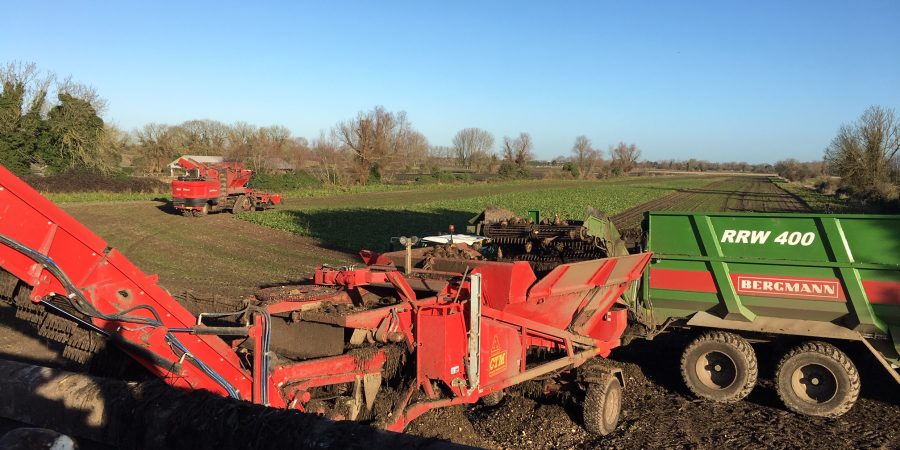As the current sugar beet season nears its close, growers have had to be considering whether to include this popular break crop in their rotation. Information from JVFG is helping to inform that decision and, if sugar beet is planted in 2019, how to ensure it is a crop which generates a profit.
This season’s theme: costs of production
A recurring theme at many of the agricultural conferences and seminars this winter and spring is the importance of knowing costs of production. Far too many farmers do not measure and monitor their investment against the returns. However, steadily, more of them are benefitting from the insights gained through the benchmarking by JVFG.
Speaking at the Winter Meeting of The Morley Agricultural Foundation (TMAF) JVFG benchmarking consultant Jamie Gwatkin delivered a hard-hitting message about the costs of production of sugar beet, especially in the face of the challenge of no neonicotinoid seed treatment this season to control aphids and the yield-hitting Virus Yellows disease they transmit.
Cost of failing to control disease
“The ban of neonicotinoids is going to have a significant impact on the sugar beet crop. It makes it much more risky to grow.”, warned Jamie. “If a grower only gets moderate or low control of diseases such as Virus Yellows from the alternative spray programmes, then costs of production could exceed the contract price. It risks making sugar beet in the UK unviable.”
Half of the member businesses in JVFG grow sugar beet and data from the JVFG benchmarking analysis was used, together with evidence from the Farm Business Survey (650 farms) and from DEFRA to give an average cost of production of £17.98 per tonne of beet.
“There is a very narrow difference between the contract price (£20.42/t for a one year contract and £22/t for three year contract) and costs of production.”, explained Jamie. “If growers do not have good disease control then, relative to yield, the cost of production of every tonne is going to go up. No control could result in a yield loss of 34.0%. Even with moderate control the hit to yield could be 17.0%. It’s pretty bleak isn’t it?”
Monitoring pests as well as costs
Speaking at the same event was British Beet Research Organisation (BBRO) Head of Science Dr Mark Stevens. He signposted the imperative of careful monitoring of aphids by eye and also through the essential aphid forecasting information available from BBRO to growers. Careful monitoring will mean that when the threshold is reached, the only recommended treatment, one application of the newly-registered product flonicamid (Teppeki), could have maximum effect.
If you want to see more of JVFG benchmarking and see how through joining JVFG you could access our detailed data analysis to improve your business then contact JVFG Chair Tim Merry chairman@jvfg.co.uk .



